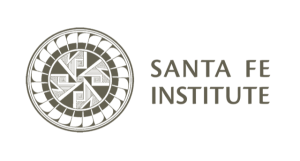Workshop funded by the Physics of Living Systems Program of the Division of Physics at the National Science Foundation
MAIN
AGENDA
ATTENDEES
LOCATION & TRAVEL
TALK VIDEOS
ABOUT THE WORKSHOP
The ultimate goal of complexity science is to accomplish a suitable analog in the world of adaptive systems to the unifying formalisms, largely evident in physics and chemistry, that have proved so successful in the simple sciences. The highly effective reduction of systems of measurement to quantitative relations, and in some special cases laws, has provided explanatory, predictive, and interventional power over vast swathes of the observable universe.
A defining property of complex systems is the proliferation of “frozen accidents” – path-dependent properties – that require that models and theory grow in proportion to histories. Thus there is no obvious “theory” of a specific ancient civilization that can ignore the decisions and rules that said society implemented over the course of its formation. The same could be argued for a specific ecosystem, nervous system, or social system.
Somewhat surprisingly, by coarse-graining what we mean by an ecosystem, nervous system, or social system, we have been able to discover quantitative relations that obey rules or laws that transcend particularity and material properties. In other words, through an appropriate choice of “resolution” and aggregation, we observe the convergence of systems and the emergence of universality.
A proposed two day workshop will be held in the Washington D.C. area. The Workshop, to be titled “Convergent Paths towards Universality in Complex Systems” will address universality in five primary areas:
- Information Processing and Collective Computation– Collective computation at multiple scales from nervous systems to social systems
- Adaptive Dynamics– Modeling evolutionary and inferential change – from genomes to neurons
- Scaling– Universal properties spanning distinct histories from biological to urban systems.
- Interactions and Energetics– The emergence of diversity and structure at multiple scales
In each of these areas, a range of universal phenomena have been observed that point towards fundamental constraints of structure, energy & resources, and information. These discoveries resemble recent work related to the relative primacy of matter versus information in the structuring of the physical universe. The convergent properties of each of these areas and their corresponding theoretical frameworks are of great interest and promise, pointing towards a more profound synthesis of complex systems. The proposed workshop will contribute new perspectives on universality and will be an important and necessary step in the identification of further research necessary for discovery in these converging fields.
Santa Fe Institute Organizers
David Krakauer
Jennifer Dunne
Jessica Flack
Geoffrey West
Susan Carter

